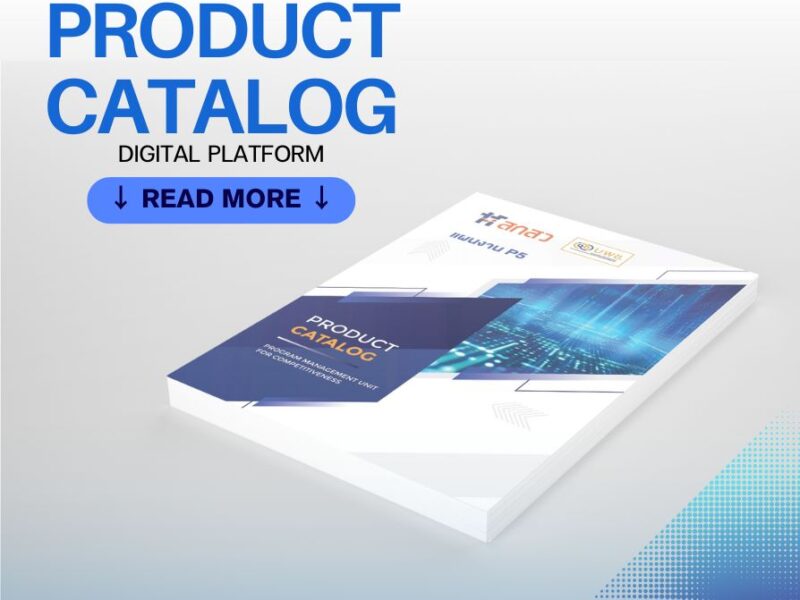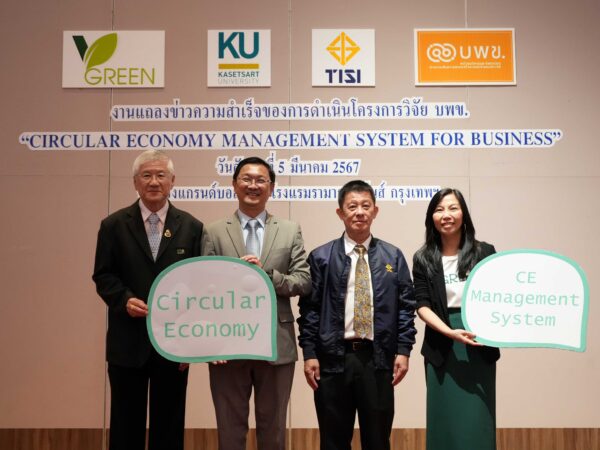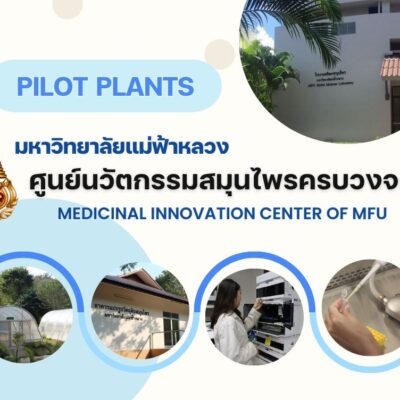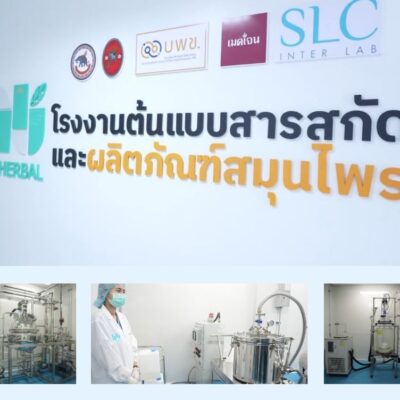The automotive industry is currently undergoing a major transformation as electric vehicle technology (EV) began to replace petrol-driven engines. But the existing knowledge is not quite sufficient for all types of vehicles, especially trucks. This is the transportation sector that plays an important role in the industrial and economic sectors.

Mr. Panus Wattanachai, Chief Executive Officer of Panus Assembly Co., Ltd., said that the company is engaged in the production of almost all types of transporting trucks, and cars that have been used in airports for more than 50 years. Today the company’s mission is still mainly about creating innovative businesses, especially the business the of producing electric vehicles (EVs), as the company has worked with suppliers to successfully develop the world’s first electric aircraft towing tractor, which was showcased in Las Vegas and Munich last year. 2017 was therefore the starting point that led to more research and development to expand the “project to build a prototype electric truck by Thai people, and to develop infrastructure for electric charging stations, testing and maintenance stations, as well as digital fleet management platform and personnel development programs for electric vehicles.” with the funding support from the Program Management Unit for Competitiveness (PMUC) – the Science, Research and Innovation Promotion Fund.
“The company, as the country’s largest truck manufacturer, sees that currently most of the imported electric trucks are imported mainly for testing purposes and have not been actually used in real applications. Therefore, the company sees an opportunity to develop electric trucks and build an EV conversion industry as well as the overall value chain for the country.”
When PMUC announced an open invitation for submitting proposals to request funding, the company did not hesitate to apply under the research thesis and premise of the commercial innovation research project, to “prove the feasibility of production technology for prototype electric trucks”, as well as to “prove that electric trucks can be commercially scalable at TRL9 level.” There is a project implementation period of 2 years (1st year from 30th March 2021 and 2nd year from 30th March 2023), with a total of 6 prototype vehicles to be developed. In the first year, 3 types of prototype electric trucks (EV Conversion) are to be delivered, consisting of 4-wheel, 6-wheel and 10-wheel trucks. And in the second year, 3 types of newly developed prototype electric trucks must be delivered.” said Mr. Panus.
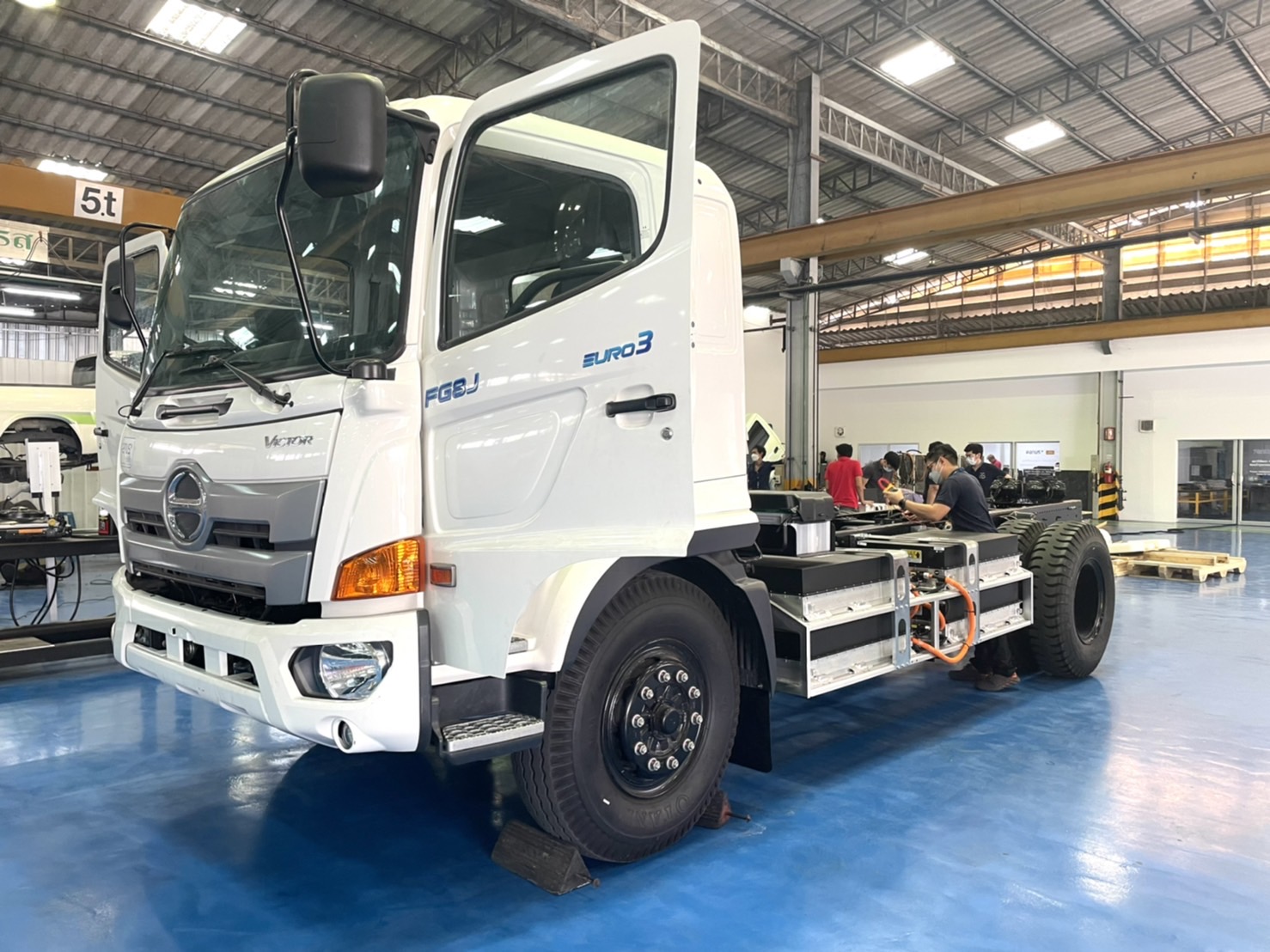
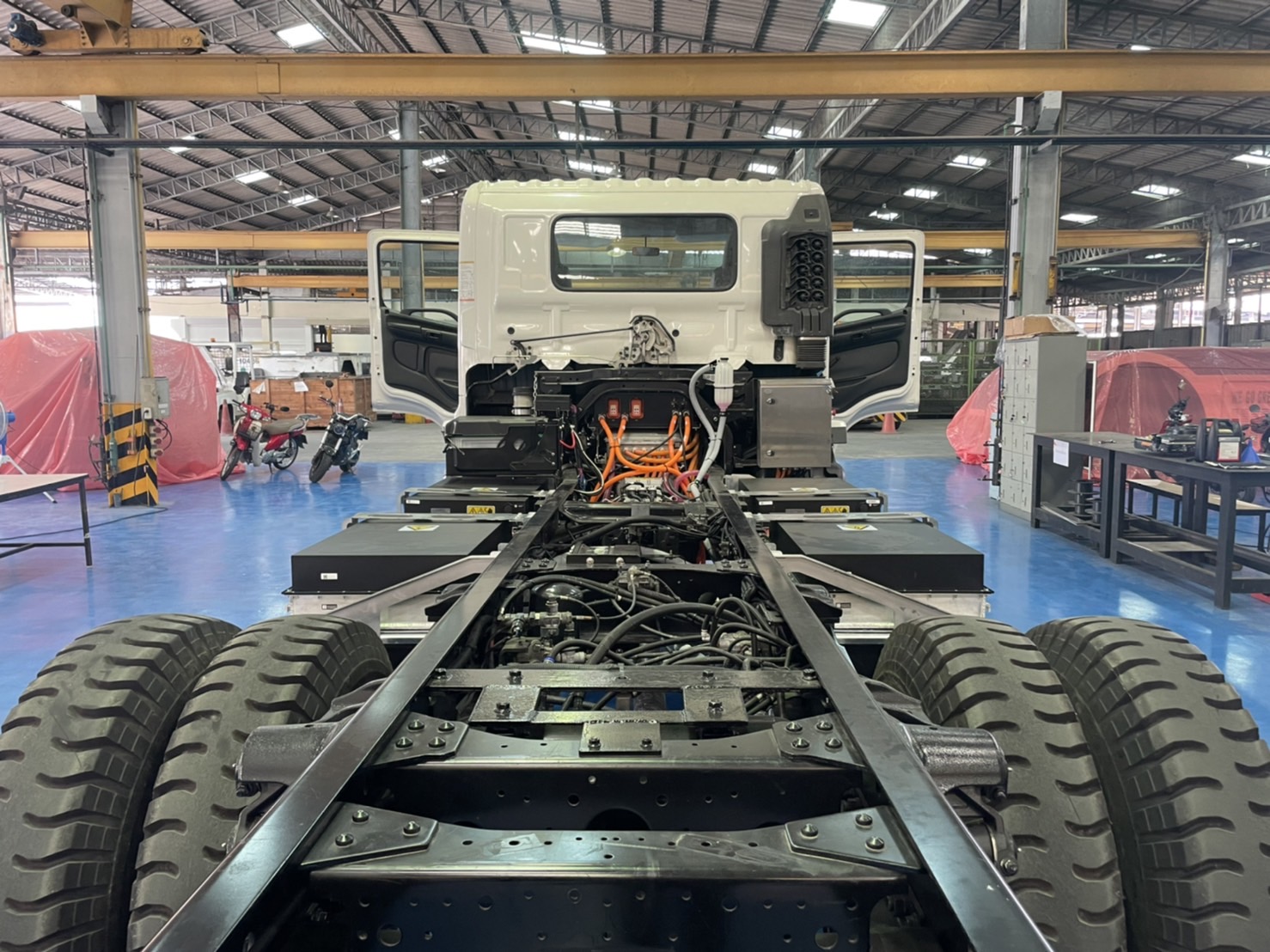
The main objective of the project is to convert combustion trucks to electric trucks (EV Conversion) categorized into 3 types or 3 models, while at the same time conducting performance testing of various parts, usage patterns, as well as testing the usage of the vehicles in various environments in order to develop final production vehicles which are suitable for use on typical roads and in typical weather conditions in Thailand due to the fact hat EVs will likely have problems in high temperatures. Therefore, it is hoped that this project will give rise to new technological knowledge and crucial components to be further built on and developed into 3 new electric truck models with modern designs, using lightweight materials and batteries developed by the company, as well as being able to modify or improve the vehicles to meet the needs of each industry. In addition, the knowledge gained will be used to educate and develop EV personnel to support future production lines through cooperation with various educational institutions such as the King Mongkut’s Institute of Technology Ladkrabang (KMITL), Naresuan University, etc.
Mr. Panas added that, in addition to testing the suitable usage conditions for the vehicles, cost-effectiveness is another factor which needs to be tested as well, because electric-powered cars are still expensive, especially batteries for trucks and other important parts, which Thailand still has to import. Therefore when EVs make their way into the market, various parts for the combustion engine will disappear. Therefore, knowledge base, technology platform and personnel development must be prepared to support the production line in the EV conversion industry that is forming at the same time. The most important components of the EV vehicle include the Vehicle Control Unit (VCU) or the control board, which is currently under testing and development, the high-power electric motor for electric trucks, which will be the main drive train, is also under ongoing development and improvement to suit the usage rate of each type of truck (4 wheeler, 6 wheeler and 10 wheeler) as its in hopes to create an overall value chain for the country in the future. Another important component is an efficient and fast charging system to shorten the charging time. A DC Quick Charge outlet is currently being developed for trucks, which will have a high charging power of about 150 kW and take 45 minutes to charge, instead of 3-4 hours for each charging session.
The company has researched and developed these components to be used with electric trucks in the country in collaboration with research agencies both in Thailand and abroad, such as the Industrial Technology Research Institute (ITRI), King Mongkut’s Institute of Technology, Ladkrabang, the Thai-Japanese Institute of Technology, and Naresuan University, etc. The company is also used funding received from PMUC to develop the “Platform” application to transmit usage data and current situation of the trucks in operation to business owners, enabling status tracking during an entire trip. In addition to tracking the location of a vehicle, it is also possible to see specific vehicle usage data, such as engine starting, running distance, or even the status of the battery, all of which is currently under development in parallel with the development of key parts and performance testing of the EV conversion prototype. Recently the company is preparing to launch three types of converted electric truck prototypes around the end of February, which are currently in the process of assembly and system tuning. Additionally three more electric truck models are now in the design stage, preparing to continue development in the second phase in parallel with the development of the supporting platform. The expectation is that the prototype electric trucks will be delivered and an EV conversion industry will be fully established by early 2023, in line with the country’s approach to promoting electric vehicles according to the government’s 30/30 policy by 2030.

